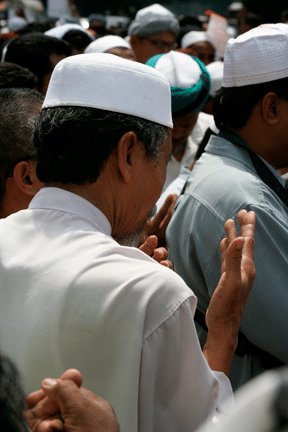Related Articles
Let’s Leave Shahada to Real Muslims
I write as a follow up to Gene Daniel’s important contribution on shahada confession, which appeared in the July 2014 issue of EMQ. The author notes that among Christian missionaries “there is disagreement about whether a believer in Christ can, with a clear conscience, say the second half, that Muhammad is his [God’s] messenger.”
What Makes Mission Christian?
Although Christian mission may seem easily definable, there is a growing divide among evangelicals today regarding the fundamental meaning, role and purpose of this mission.
What Makes Mission Christian?
Although Christian mission may seem easily definable, there is a growing divide among evangelicals today regarding the fundamental meaning, role and purpose of this mission.
Is the Father of Jesus the God of Muhammad?
The premise of the popular television quiz show “Jeopardy” is to give a statement, after which the correctly-responding contestant asks a question which that statement answers.
The Poor: A Case of Mistaken Identity?
Currently, article after article and book after book refer to the poor? But seldom is the word poor carefully defined.

